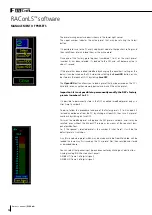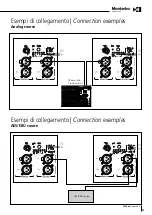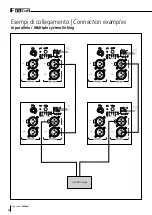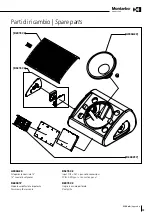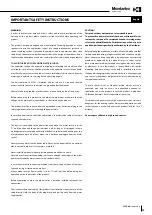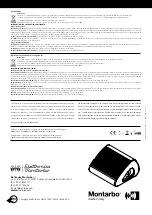
owner
’
s manual |
F15CxA
48
This is the command window from which it is possible to work on all modifiable
parameters.
At the left a stereo bar-graph indicates the input levels.
The red indicator light will go on when an A/D converter overload is detected.
The equalizer section includes 10 fully-parametric filters that make it possible to adjust
the system's frequency response, to adapt it to a particular room's acoustics or to obtain
a personalized response.
The default frequencies are set on standard octave-band centers so that the equalizer
may be used as a standard octave graphic equalizer, but each filter is independent and
for each one of them it is possible to adjust:
- center frequency, from 10 Hz to 18 kHz
- gain from -9.0 to + 9.0 dB
- Q (filter bandwidth) from 0.2 to 20.0
To adjust a parameter's value, place the cursor of the mouse onto the desired knob and
move it while keeping the left button pressed down.
On rotary knobs it is possible to move the cursor to the minimum or maximum position
(the cursor will change to a + or – sign), then adjust the parameter by clicking with the
left button of the mouse (fine adjustment) or right button (coarse adjustment).
Aggiungere:
It's also possible to edit the value directly
from keyboard:
1)select the value by doubleclick or Tab key
2)edit the new value
3)press enter
Three buttons on the lower portion of the window will allow you to enable/disable the
equalizer (Flat), to 'copy' the equalizer's setting to all the networked speakers (repeat)
and to clear all the changes by restoring the default setting (doubleclick on [Def] button).
The ovflw indicator light comes on when the parameter's limits have been exceeded (e.g.
maximum gain, low Q and frequency near the limits).
When the ovflw indicator is on, the equalizer's effective settings may be different from
the ones shown by the knob settings.

















